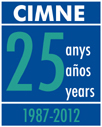|
Introduction
Model order reduction (MOR) techniques allow for a simplified representation of the evolution of physical systems, employing a very reduced number of degrees of freedom. Based on the above considerations, MOR techniques have gained a tremendous popularity in the last years due precisely to their ability to greatly reduce computational cost at a price of only a minimal loss of accuracy, that can be nowadays fully quantified. MOR techniques seem, therefore, to be an appealing choice for their generalization in industrial contexts.
Despite the first MOR methods were proposed decades ago, MOR methods have gained special attention from academy and industry in the last years, thanks to the recent developments and new trends.
The objective of this Short Course is providing a background in MOR methods and current trends, including formulation, analysis, implementations issues and applications.
It is structured in 10 modules of 1.5h teaching, convering 4 main topics: Introduction to Reduced Basis, Principal Component Analysis and Proper Orthogonal Decomposition, Proper Generalized Decomposition and Uncertainty Quantification.
The Course is addressed to an international audience of graduates in Engineering and Applied Sciences, and is mainly targeting master and PhD students, as well as professionals from the public or private sector, seeking an introduction or a deeper knowledge of ROM methods and its applications.
A solid background in numerical methods for partial differential equations and computational mechanics is necessary to properly follow the course.
This Course is funded by the European Commission, through the EACEA Agency, with the programmes Erasmus Mundus Master in Computational Mechanics, and Erasmus Mundus Joint Doctorate Programme SEED.
|
|

